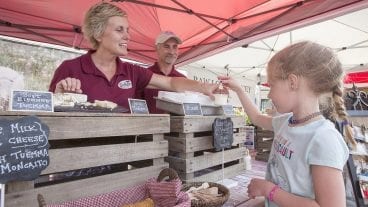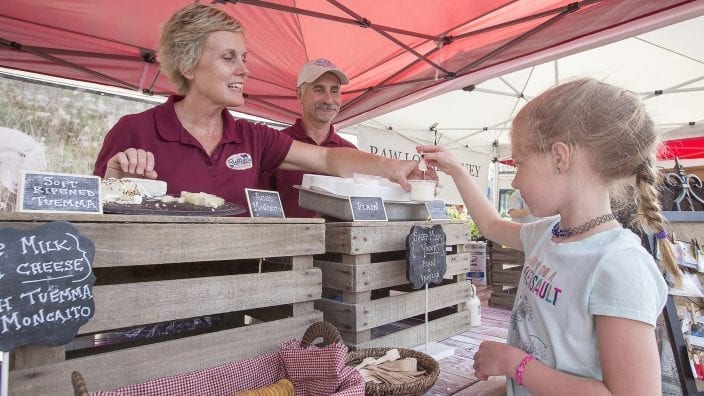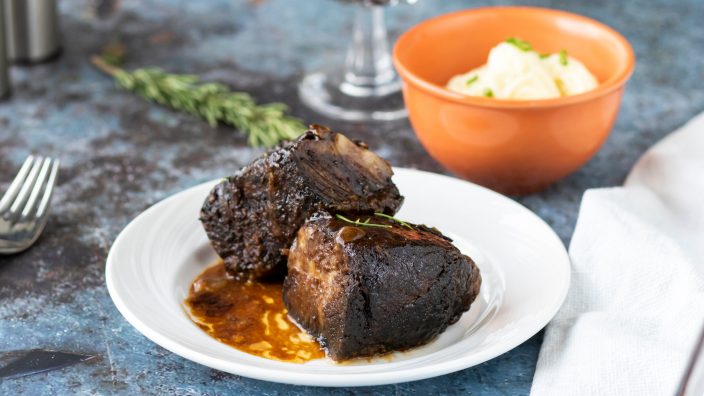Farmer’s Guide to Trucking Regulations available to Ohio Farm Bureau members
The guide includes a farm driver checklist, overview of state and federal regulations and exemptions, CDL qualifications and more.
Read More
So, during this pandemic, especially early when people were panic buying, many people saw either in person or via social media limits or total outages in agricultural products that everyone previously took for granted.
Items like ground beef, milk and eggs seemed to take a hit as Americans attempted to stock their refrigerators. In fact, many places like Walmart even put limits on the amount of milk people can buy.
But the very next day, headlines were made when farmers were forced to dump entire loads of milk because processors could not take the milk. The problem, though, doesn’t lie with farmers. It lies with the system that our food has to go through to get to our stores. Unfortunately, it is not a system open to change.
Since I have you somewhat captive, I think it’s a perfect time to explore how our food chain works. See, it’s not like how babies are delivered — you know, the old stork method where a stork just dropped the baby off on the front lawn. Farmers just don’t drop your groceries off at the store and go back for the next load.
That kind of system would leave us open to a host of bacterial issues, quality issues, legal issues and so many headaches no one would ever want to farm.
While I’m going to try to do a generic exploration, each commodity group (or food group) has its own way of getting its products from the farm to the store and finally to your table. I also do not claim to be an expert in this process.
Once farmers have harvested their commodity, whether it be steers, corn, milk or vegetables, semi-trucks come pick up the commodities to take them to their respective plants. Depending on the plant and the type of commodity, most items are sorted, graded and then packaged to go out to your local grocery store shelves.
For example, eggs are collected, then washed, sanitized, candled (which determines the quality), graded, sorted and packed and finally shipped.
This is also similar to vegetables. When farmers harvest the goods, then the fruits and vegetables are sent to a packing house where they are cleaned, washed, waxed, put into shipping containers and then transported to grocery stores to be displayed.
Milk also goes through a similar process, with some added testing. Once the farmer milks the cows, the milk is stored in a bulk tank at the farm where it is kept at about 39 degrees and waits for no longer than 48 hours.
Milk trucks collect the milk every day or every other day. Milk truck drivers are responsible for grading and taking the temperature of the milk before it ever enters the truck. If it does not meet the requirements, the tanks will be emptied, and the farmer will lose his or her income for that day.
Once milk enters the truck, it is taken to the milk plant, where it is put in refrigerated silos. The milk truck drivers also are responsible for turning their samples over to the laboratories at the milk plant, where the milk is tested for antibiotics, temperature and ratios of milk fat, protein, bulk milk cell count and bacteria count.
If any issues are found, the entire silo will be emptied, and the offending farmer can be fined.
Once the milk is cleared, it is pasteurized, homogenized and put into jugs for delivery at the store.
Pasteurization involves killing the bacteria present in milk that could make people ill; homogenization is a process that makes the milk stay together so that the cream does not float to the top. It is what makes milk smooth and silky.
The process for meat is similar except live animals are transported and then dispatched at the plants, graded and then butchered into the cuts or processed products we buy at the store.
That is a super brief explanation that barely does justice to the system that provides us healthy, nutritious and safe food. We all want our food safe and cheap and well, let us be honest, candling chicken eggs, dispatching hogs or washing vegetables does not sound like the most glamorous or high paying job. News flash: it is not.
Well, with the recent announcement that Smithfield (pork) would shut down plants, JBS USA closing plants, National Beef Packing Co. closing plants and Cargill shuttering plants — all due to COVID-19 — many people are worried about the food supply.
We need to be doing the things that guarantee our food supply will be safe through this pandemic and others that we may encounter. We need to push for corporations to provide sanitary conditions all the time, not just during times of crisis. We need to force the processing plants to be held more accountable for their workers.
After all, farmers are still producing the food. It is the corporations that are failing the American people.
Submitted by Christen Clemson, a member of the Trumbull County Farm Bureau, who completed her doctorate at the Pennsylvania State University. She and her family farm in Mecca Township.
OFBF Mission: Working together for Ohio farmers to advance agriculture and strengthen our communities.


The guide includes a farm driver checklist, overview of state and federal regulations and exemptions, CDL qualifications and more.
Read More


The emergency fuel waiver to allow the sale of summer gasoline blends containing 15% ethanol will lengthen the period during which Americans can continue buying E15 from June 1 to Sept. 15.
Read More

The Small-Scale Food Business Guide covers federal and state regulations for selling food products such as raw meat, dairy, eggs, baked goods, cottage foods, fruits and vegetables, honey and more.
Read More

New resources and technology are broadening the different types of sales tools and strategies available to farmers.
Read More

ODA will enroll 500,000 acres into the program for a two-week sign-up period, beginning April 22, 2024, through May 6, 2024. Contact local SWCD offices to apply.
Read More

Katie Share of Columbus has been named ExploreAg and Youth Development Specialist for Ohio Farm Bureau.
Read More

Mary Klopfenstein of Delphos has been named Young Ag Professional and Ag Literacy Program Specialist for Ohio Farm Bureau.
Read More

The plan has been updated to give sole proprietors access to more rate stability and a smart solution that offers potential savings on health care.
Read More

The American Farm Bureau Federation, in partnership with Farm Credit, is seeking entrepreneurs to apply online by June 15 for the 2025 Farm Bureau Ag Innovation Challenge.
Read More

Adele Flynn of Wellington has been elected treasurer of the Ohio Farm Bureau Federation and now holds the third highest elected office in Ohio’s largest and most influential farm organization.
Read More